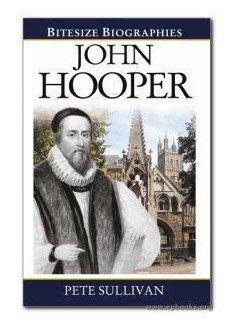John Hooper
Pete Sullivan
EP Books (Bitesize Biography)
158 pages, £6.99
ISBN: 9781783970094
Star rating : 4
Pete Sullivan’s biography of John Hooper is a brief but excellent account of the last few years of Hooper’s life. This period, during which he received the bishoprics of Worcester and Gloucester and died a martyr’s death, demonstrated his character and theology at its best.
The first four chapters describe the events leading up to Hooper’s eventual appointment as Bishop of Gloucester. From 1549–50, Hooper faced many trials and hardships. In many fierce debates on the Lord’s Supper, Hooper was opposed by Catholic priests Stephen Gardiner and Edmund Bonner.
Also, Hooper, bound by his firm conviction regarding oaths and vestments, tenaciously resisted his appointment by Edward VI to a bishopric, until, after a short time in prison, he submitted to vestments and the appointment.
The next three chapters in Sullivan’s book deal with Hooper’s tenure as Bishop of Gloucester and Worcester. Hooper’s tenure as bishop and pastor in these parishes was marked by reformation in all levels of society. Sullivan’s treatment of Hooper in this section is fair as he expounds Hooper’s methods of reforming the church and disciplining any who transgressed the law.
The final chapters give an account of Hooper’s years of imprisonment and eventual martyrdom. The persecution under Mary I was perhaps one of the most brutal periods of English history and Hooper received the brunt of it. He was confined to the worst of prisons and treated brutally by his jailer and those opposed to him.
Yet, in the midst of such trials, Hooper’s devotion to prayer, his reliance on Christ and his belief to the bitter end in the Scriptures, leave a wonderful example.
He died on 9 February 1555 by being slowly burnt alive at the stake in Gloucester. A monument was built on the exact spot where he died, with an inscription showing his devotion to the ‘witness of Jesus and for the Word of God’ (p.143).
This book is notable for its singular clarity and fair exposition of a man devoted to God. Sullivan does not venerate his subject, but expounds Hooper’s life as a sinner saved by God’s grace, and as a man who stood for what he believed in. Sullivan adopts a readable style and leaves the reader hungry for the next chapter. It is well worth reading.
Ben Wilkerson
Sheffield







